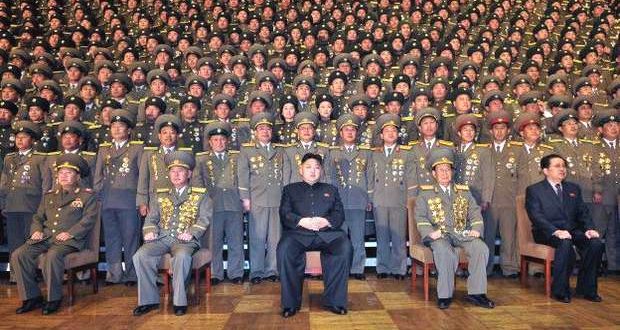
Ivan Garcia, 28 April 2016 — What do the autocratic Castro brothers, the solemn Vatican, Islamic fundamentalists and the madhouse that is North Korea have in common? The answer is simple: devotion to dogma, lack of transparency and unchecked caste-based power.
In theory communism should be music to the ears of a laborer who works eight hours a day and is not paid until the end of the month. Imagine it: a world without class distinctions or the need for money or budgets to maintain standing armies.
It sounds like one big peaceable kingdom. But in practice nothing works and for one very good reason. As we all know, the world is populated by capricious, imperfect, narcissistic, ambitious and competitive human beings.
A few are community-minded and help out their neighbors. But most only care about their own relatives. If the world is not a big, bloody slaughterhouse — a place where the strong trample the weak — it is thanks to a body of laws that stipulate long years in prison, or in some cases the penalty of death, for homicide and criminal activities.
Something similar is at work in the international arena. China does not use force against Taiwan for fear of reprisals. Russia and the United States do not engage in nuclear warfare because it would destroy the planet.
There is a similar dynamic when it comes to North Korea and South Korea, or in India and Pakistan’s struggle over Kashmir. There are fewer conflicts between nations in the twenty-first century than there were a century ago.
There are now civil wars, medium-intensity brawls between two or more states and a bizarre Islamic caliphate that has gained ground in the Middle East due to the apathy of the major world powers.
There are zones of influence. Russia has colonized a region of Ukraine, Great Britain is landlord of the Falkland Islands and no nuclear power challenges the mighty US army on the North American continent.
Despite the danger that nuclear weapons pose, they have a deterrent effect. Political and religious dictatorships are among humankind’s congenital traits.
It does not matter what mystical ideology or faith they represent. It does not matter whether it is right or left. Or whether it is Catholic, Islamic or Jewish. Its structural framework is dogmatic and anti-democratic.
The pope reigns until he dies or until powerful forces within the Vatican push him out, as happened with Benedict XVI. The thug state of North Korea will be governed by the Kim dynasty until the day its people have had enough.
Cuba’s Castroism as well as China’s and Vietnam’s communist plutocracy will end when political factions recognize that the democratic model works better, generates more wealth and produces a better quality of life.
People’s revolutions are not common in totalitarian societies. Fear and social control keep the governed in check. The exercise of absolute power is always accompanied by corruption.
Greed is an unpleasant human trait. Even in democratic countries — in spite of their independent judiciaries, transparency, free elections, parliamentary rule and free press — politicians, businessmen and bankers still like dipping their hands into the till.
But if a district attorney or bright investigative reporter goes snooping, he could face prosecution. Just look at the FIFA case, the International Athletics Federation or the Petrobras corruption scandals.
Citizens of democratic countries feel the battle has been lost. For every person who goes to jail for embezzling public funds or getting rich illegally, half a dozen get off scot-free.
But there are institutions and media outlets to hold them accountable. That is not the case in autocratic systems. In the Castro brothers’ Cuba, only the state brings egregious corruption scandals to light.
The press is its obedient ally, the judiciary is another branch of its power and the legislature is a joke, voting unanimously as directed by the executive.
The Vatican’s authoritarian style of governance also creates problems. The legacy of the papacy — with its fratricidal conflicts, crimes and wars in the name of religion — is a part of world history.
Could John Paul II or Benedict XVI have democratized the Vatican? They could not and would not. Francis is trying, but there are attempts to sweep cases of pedophilia and corruption under the rug.
Emiliano Fittipaldi, an Italian reporter who has investigated the Holy See’s finances and illicit businesses is awaiting trial by the Vatican and could be sentenced to as much as eight years in prison.*
His crime? Publishing a book, Avarice, in which he explores these allegations. It is not God’s fault that human beings have a penchant for dynastic power and taking what does not belong to them.
it is part of human nature. Fixing human beings or trying to construct an individual without flaws only paves the way for a new type of dictatorship. Cuba is a good example. Therefore, the best and only option is to choose democracy. For all institutions.
*Translator’s note: Italian journalists Emiliano Fittipaldi and Gianluigi Nuzzi are accused of having published books about Vatican waste, greed and mismanagement that were based in part on confidential Holy See documents. The books are based on documents leaked in 2012 by Pope Benedict’s butler. (Source: Daily Mail).
